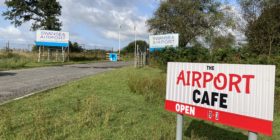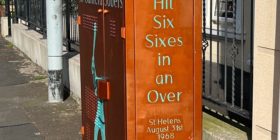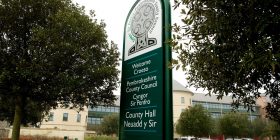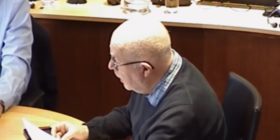The Impact of Covid on School Attendance in Deprived Areas: Insights from Swansea Council

THERE is a direct correlation between low school attendance since Covid and deprived areas, Swansea Council’s director of education said.
Helen Morgan Rees was speaking at an education scrutiny meeting during a discussion about how to manage and improve pupil attendance. Councillors were told that low attendance wasn’t linked to particular year groups but was linked to geographical areas.
Ms Morgan Rees said she had been analysing attendance data in Swansea. “I can see there is a direct correlation between our most socio-economically challenged areas,” she said. She added that resources to improve the situation were being targeted in those areas.
Primary school and secondary school attendance prior to Covid was 95% and 94.3% respectively in Swansea. In 2021-22 it fell to 90.1% and 86.6% – a decline mirrored nationally – but has since climbed to 91.2% and 88.4%.
Helen Howells, the council’s pupil support team manager, welcomed the improvement but said it was still “nowhere the position where we would want to be”.
She said attendance was being impacted by a general rise in anxiety among young people, poor mental health, and the cost-of-living crisis, and that some schools had “exhausted” their attendance strategies.
“Some parents are not seeing the importance of sending their child to school on a regular basis,” she said.
Ms Howells added that schools also had a responsibility when it came to attendance, and that the council’s education department encouraged them to use strategies and interventions they felt worked best.
Ms Howells said the department now had a “fit-for-purpose” attendance strategy, worked closely with child and family services and early help hubs, and that a small grant would fund education support officer work. She added that Swansea’s school attendance figures compared to the rest of Wales were “pretty good”.
Panel convenor, Cllr Lyndon Jones, recalled a visit to Dylan Thomas Community School, Cockett, where the head and deputy head teachers greeted pupils when they arrived at the beginning of the day. “That meant a lot to a lot of those children,” he said.
Ms Howells said this meet and greet arrangement also happened at other schools. She added: “Being treated with kindness when you come in after some time is really important.”
The panel, which also heard that home education had only risen very slightly since Covid, was briefed later about school exclusions.
Ms Howells said exclusions had risen in three comprehensive schools and the Maes Derw pupil referral unit this year, with exclusions in the rest of schools going down “quite dramatically”.
She said there were 27 permanent exclusions this year in Swansea – including an unusually high number in the summer term – compared to 36 the previous year. Six of the 27 exclusions were rescinded compared to 11 the year before.
Several of those excluded were enrolled in other mainstream schools; the remainder now had “education other than at school” provision.
The panel also heard that fixed-term exclusions in Swansea were rarely more than five days. Early intervention to prevent exclusions was, said Ms Howells, key, as well as strong pastoral support for pupils. “We can’t change societal problems on our own,” she said.
By BBC LDRS
Spotted something? Got a story? Email News@News.Wales










